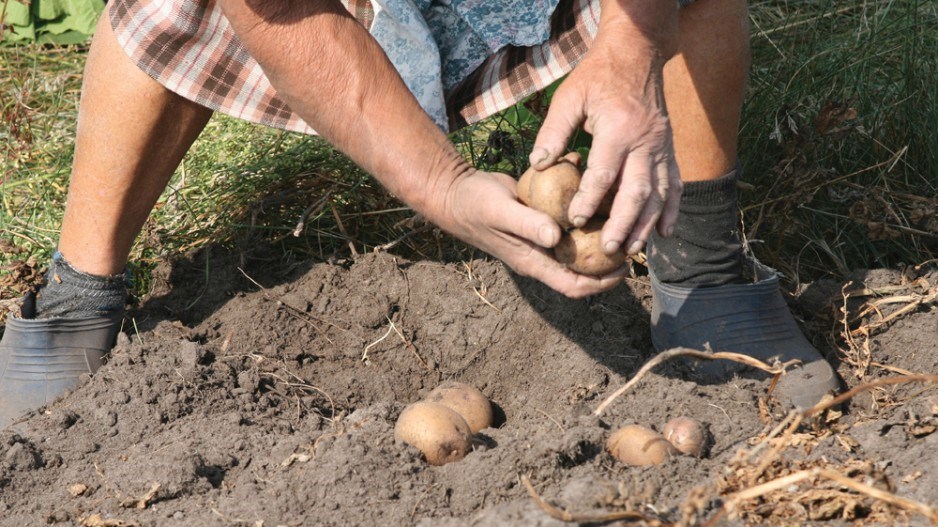The expected prolonged supply chain disruptions in Ukraine, Russia and Belarus will likely add more pressure in the coming months – and maybe years – to Canada’s internal transport infrastructure.
That’s because the goods whose production is being disrupted in the warzone in Europe – precious metals, wheat, fertilizer, and oil and gas – include many of the top commodities that Canada exports.
With the main alternative suppliers in Eastern Europe not being able to produce, the demand on Canada’s production will likely place new pressure on Canada to deliver more onto the global stage, researchers say. And these pressures will come if the Ukraine crisis stretches on – even if they are not obvious now.
Opher Baron, distinguished professor of operations management at the Rotman School of Management at University of Toronto, said that the most obvious economic impact from the Russian invasion has been spiking oil prices. However, other commodities with different production cycles – such as agricultural goods like wheat, which are seasonal – the lag means the boost in global demand will not appear until months into the conflict.
“Basically, the time you start seeding your fields is coming soon,” Baron said. “And if you don’t do it, there will be some shortage [of crops] generally.”
The same goes for other items such as ores and metals that go into complex manufacturing processes, where the true impact of the shortage may not be seen until months down the line. Baron compared the situation to that of certain components of electric vehicles for example: The material in these cars being sold now were likely mined out of the earth up to a year ago or more, meaning delays may not materialize right away if there is a shortage of a certain material.
“These are two [Russia and Ukraine] relatively large economies, especially in the context of some of the more rare resources,” Baron noted. “So it will have a lasting impact.”
Sylvain Charlebois, director of the Agri-Food Analytics Lab at Dalhousie University in Halifax, recently released a report on “shelflation” – or the wasting of food products on Canadian shelves as supply chain strains in the last year lengthened the delivery time of such goods from farm to market.
Charlebois, who commenced the research in 2021 after noticing more instances of dairy products expiring on store shelves, said Canadians may have had to discard as much as $550 million in food products because they can’t get to market quick enough.
Although the situation in the report – compiled in fall 2021 – was caused by the pandemic and weather issues across Canada, Charlebois noted any disruption to the Canadian distribution system would contribute to the problem moving forward.
The war in Ukraine – and the potential higher global demand for Canadian agricultural products – will likely not help the situation, he said.
“Absolutely,” Charlebois said when asked about the possibility of Ukraine adding further stresses to Canada’s agricultural supply chains. “I think consumers will need to be a little bit careful moving forward. ... People will have to be vigilant while industry adapts.”
For Charlebois, there is something that Canadian consumers here can do about the situation. He noted that – in other instances such as “shrink-flation,” or the reduction of a product’s packaged quantity while retaining the same price – there is often little consumers can do to counter its effects.
With “shelflation,” however, the strain is time-related. That means that a consumer can adapt to the new supply chain timelines by buying smaller batches of goods more frequently – matching the longer timelines of a product’s delivery from production to market.
“If you know the supply chain is not working as effectively, it may not be the best idea to go to a grocery store and buy two weeks’ worth of fruit,” Charlebois said. “You may want to go two, three days apart if you can. Otherwise, you may just end up buying too much and throwing away too much.”
Baron added that the key issue remains the duration of the Ukraine conflict, although he warned that for commodities like agricultural goods and rare metals where the lag time is more pronounced, it will take an equally longer period of time for those supply chains to smooth out once the war is resolved.
“In terms of oil and gas, the response will be quite quick – just like what we’ve seen with the quick response when the conflict started,” he said. “With respect to food, there may be a [longer -term] issue. If you miss a season of agriculture, you miss that season.” •




